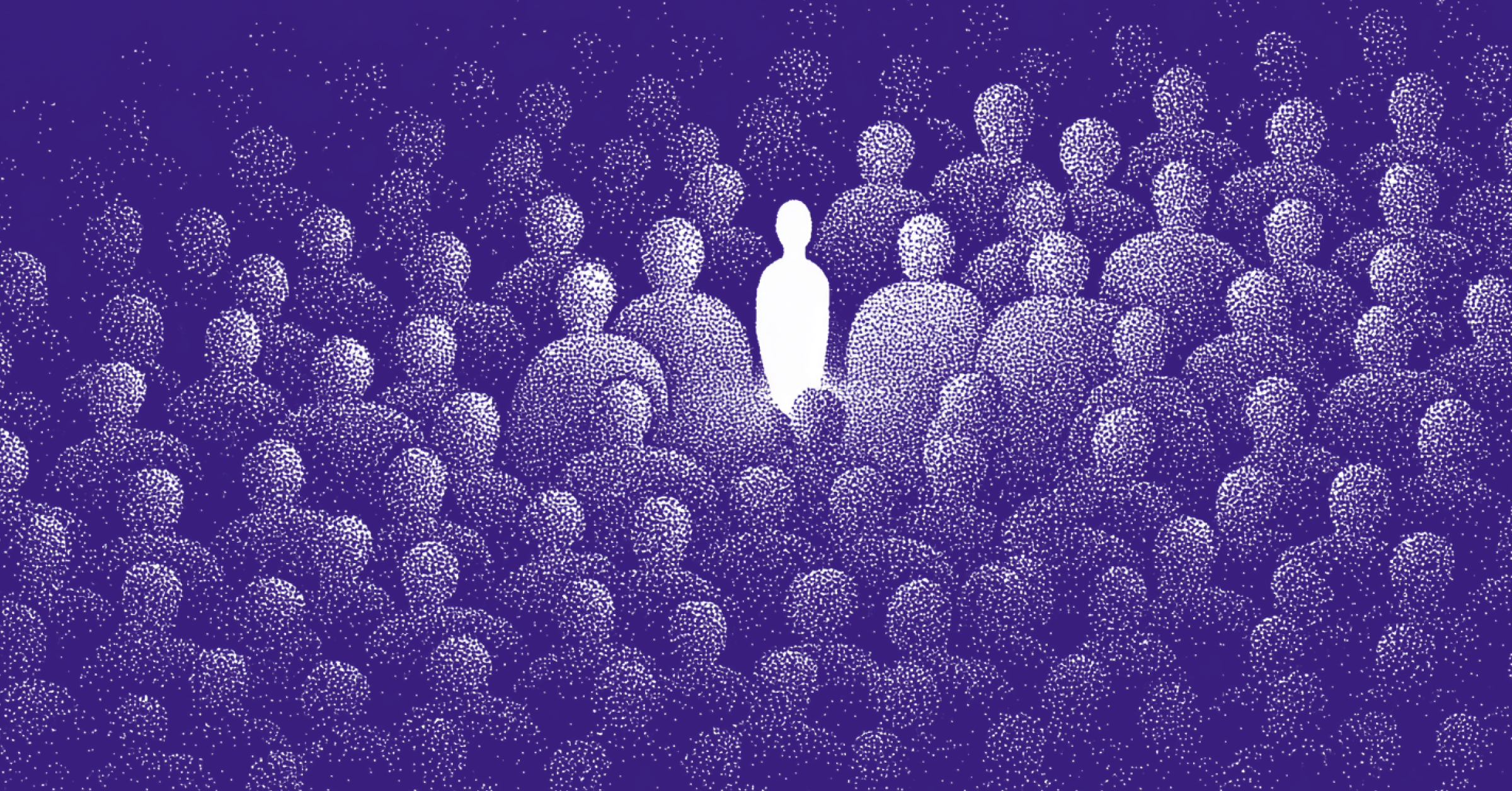Jasper Marketing
January 17, 2023
Expectations vs. Reality: How Will the Future of AI Look?
Artificial intelligence is rapidly improving. Get expert insights on what the future of AI holds and the impacts of artificial intelligence advancements.

The future of artificial intelligence (AI)—is it promising or problematic?
This is one of the biggest questions looming as artificial intelligence advances at breakneck speed.
On one hand, we’re already seeing many ways that AI can be helpful.
Website chatbots are becoming more capable of resolving customer concerns and questions. Tools like Jasper are helping marketers and writers create unique content and copy at up to 10 times their usual speed. And other tools, like Surfer, are using natural language processing (NLP) to provide recommendations for content optimization. And many tools—like Jasper and Surfer (pictured below)—now integrate with one another to maximize benefits for users.

On the other hand, many people are uneasy about AI. As it becomes more advanced and jobs are automated, will it eventually replace humans? Since AI is trained on existing models, will there be too many legal or ethical gray areas? And what about AI bias?
Will artificial intelligence a few years from now enhance our lives or wreak havoc? Here are our predictions.
Looking ahead: Where AI is heading in the near future
There are countless possibilities for how AI could advance in the coming months and years. Jasper’s VP of Marketing, Meghan Keaney Anderson, explains why:
“It’s important to understand that AI is not a single thing. There are AI language learning models that provide the output and AI applications that work with them to select the right model for a given use case and refine those outputs. They'll each have advancements over the next few years. So will things like computing power and efficiency—and our own AI literacy.”
With this in mind, what specific strides might be taken across the broad category of AI? We spoke to Valentine Shkulov, Staff Data Scientist at Meson Capital, who made the following predictions:
In the next three years, I would anticipate the following:
- Increased adoption of voice assistants and virtual assistants in daily life and business contexts
- Further development of machine learning algorithms, leading to improved accuracy and speed in tasks such as image and speech recognition
- Greater integration of AI into healthcare, including the use of AI for diagnostic purposes and personalized treatment recommendations
Not far behind, Valentine says, we may witness some other new developments:
- The emergence of AI-powered personal shopping assistants, providing personalized recommendations and help with online shopping
- Increased use of AI in the financial industry, including the development of personalized investment portfolios and fraud detection systems
- Increased use of AI in the agriculture industry, including the development of precision farming techniques and the use of AI for crop monitoring and prediction
- The emergence of AI-powered personal education assistants, providing personalized learning plans and assistance with online education
And Meghan adds, “We could see AI get better at answering queries factually (it's not there today). We hopefully will see the source training materials grow and diversify to improve outputs.”
Interestingly enough, many of these applications for artificial intelligence are already being explored. This raises the question: How long will it be before changes like these could roll out?
To that, Meghan says, “I don't think the timeframe is three, five, or 10 years. I think it's six months, one year, and two years. This is moving fast.”
But will things happen too fast for our own good? For example, will job automation put millions out of work?
Don’t fear a hostile artificial intelligence takeover
Cutting to the chase, Meghan says, “Even with [the above] advancements, AI will still be most effective as an assistant to people—not a replacement.” There are many reasons for this.
Take, for example, an AI writing assistant like Jasper. In Meghan’s words:
“It's an accelerant to the writing process, but content strategy is about much more than just laying words down on a page. AI today needs people to provide original research, lived experience, good judgment, bias awareness, and so much more. As digital cameras still need the eye of the photographer, generative AI still needs the mind of the marketer.”

The same is true of AI image generators like Jasper Art. Yes, they make the way for anyone—professional artist or not—to create eye-catching visuals. But they do and will continue to require human input and creativity, from the prompt to the image settings.

What about AI in general, though? The more complex, multifaceted tasks and decision-making processes we throw its way, the more sophisticated AI will need to be. Undoubtedly, we'll see a lot of progress in the near future.
But it will be a challenging, years-long process to get artificial intelligence closer to a near-human level of capability, where it “understands” multiple nuanced considerations and data points and can consistently and accurately weigh those factors to determine the best course of action.
And there are further obstacles to the advancement of artificial intelligence:
- Diversifying the data sets that train AI to improve the quality of outputs
- Finding workarounds for computational limits that get in the way of efficiency
- Waiting to be able to leverage feedback loops that have yet to mature
Rajesh Namase, Co-Founder of TechRT, who we spoke to, also points to these issues:
- The cost and availability of resources necessary to produce new products and services
- Challenges posed by regulatory bodies who might want to limit or prohibit certain types of technological advances
- Public opinion with [society potentially not being ready for] certain breakthroughs
Now, how do we put this all in a nutshell? There is rapid progress on the horizon. There are also several formidable, multi-layered challenges to overcome. But even if all the challenges were addressed in the next five or 10 years, humans would still be irreplaceable.
That being the case, what will the future AI mean for us? We have a few ideas.
The impact of AI advancements on work and life
As artificial intelligence becomes more efficient and versatile, we’ll see its effects both at work and in our daily lives. Besides more voice assistants and self-driving cars, what big changes might we expect?
1. Shifts in the job market
While maybe not as extreme as some predict, there will likely be some changes in the job market. Meghan says:
“Companies may shift the mix and types of professionals they need as a result of AI. You may see new jobs emerge and multiply in importance (e.g., editors, creative strategists, etc.). Others may not grow as fast or decline in number. But I don't think you can draw the line to be as binary as, ‘This job will be replaced.’
History has shown that technological breakthroughs which reduce the time needed to create or communicate tend to become an accelerant to productivity. And often they lead to whole new industries and job categories.”
After all, the rise of the internet created the need for web developers, website designers, search engine optimization pros, and more. People adapted accordingly. So why couldn’t the rise of artificial intelligence result in something similar?
2. Increased personalization capabilities
As far as AI’s usage for business, Meghan predicts that there will be more personalization to individual brands or people. In other words, generative AI tools “won't just be able to create content in a human voice—[they’ll] be able to create content in your voice.”
Jasper has a head start here since you can instruct the AI to emulate your voice. The Mimic recipe below is one way to do that:

But there’s a way to go before personalization features are widely available in AI content creation tools.
Nathan Gotch, AI enthusiast and founder of Gotch SEO, shares a similar view. Nathan told us he expects that consumers will enjoy improved personalization and customization of products and services. This would be the result of artificial intelligence being able to “learn and adapt more quickly, improving its performance over time.”
3. More severe consequences for AI resistance
We’ve talked about some of the advantages the future of AI could bring. But what about companies that choose not to use artificial intelligence?
According to Nathan, they could face some difficulties:
- Competitive disadvantages compared to companies using AI to improve their operations and increase efficiency
- Difficulty attracting and retaining top talent
- Reduced ability to keep up with industry trends and changes
He further explains:
“The disadvantages of not leveraging AI may be more severe as it becomes more widely adopted and its capabilities continue improving. Companies that don’t adapt may find it increasingly difficult to compete in their markets and struggle to remain relevant and successful.”
But we believe the pros of a future with AI will balance out the cons.
Putting things into perspective
Artificial intelligence is improving fast. Across industries, more use cases are emerging all the time. Depending on whom you ask, thinking about what AI may soon be able to do is either exciting or flat-out terrifying.
Meghan agrees, saying, “So many people frame this wrong. The response is either one of fear or one of extreme hype. … [While] AI is a very powerful creative tool, it's just a tool. People are needed to make it work well.”
AI is only great when it’s used by people with great ideas. In other words, we need to avoid both setting unrealistic expectations and shying away from AI altogether. Instead, we should look for responsible ways to leverage it to boost efficiency and effectiveness.
For instance, Jasper’s artificial intelligence helps marketers and writers by cutting down on the time it takes to write high-converting content. This frees up their time to focus on the heavy lifting that only a human can do.
Find out how Jasper can help you work smarter. Get 10,000 credits free when you sign up for a 5-day free trial.
More of the latest & greatest

The Future of B2C Search Isn’t Keywords: Preparing for AI-Driven Discovery in 2026
Discover how B2C brands can win AI search in 2026 with AEO/GEO, trust signals, and structured content for Google, ChatGPT, Perplexity, and Amazon.
January 7, 2026
|
Megan Dubin

3 Ways to Optimize for Search at Scale in Jasper
Learn how Jasper helps enterprise marketing teams optimize for traditional and AI search at scale.
December 22, 2025
|
Mason Johnson

Three Use Cases for Personalization at Scale with Jasper
How Jasper Agents power personalization at scale through outreach, campaigns, and strategic initiatives.
December 22, 2025
|
Megan Dubin














